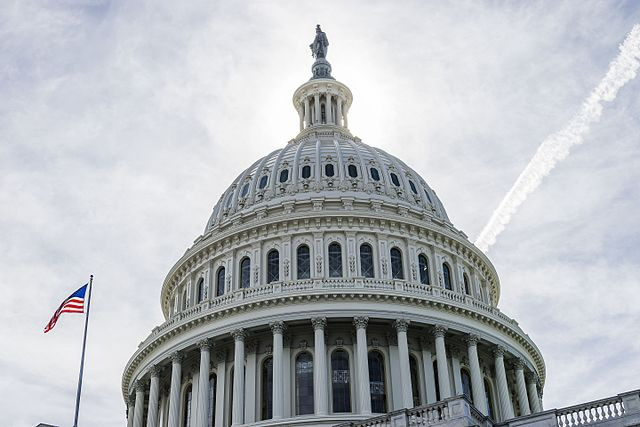In a significant move to avert a looming partial government shutdown, congressional leaders have reached a bipartisan agreement to extend the deadline for funding the federal government. The deal, unveiled on Wednesday, sets new timelines for passing the necessary appropriations bills, with a stop-gap resolution in place to ensure government operations continue uninterrupted until the agreed-upon dates.
Under the terms of the agreement, lawmakers will have until March 8 to finalize six of the 12 required spending bills, with an extended deadline of March 22 for the remaining six. This revised schedule represents a concerted effort by Congress to fulfill its funding obligations in a bipartisan manner, following a previous deadline of March 1 for the first batch of spending bills and March 8 for the second.
The joint statement issued by the four congressional leaders and the top four appropriators underscored the collaborative spirit in which this agreement was reached, stating, "We are in agreement that Congress must work in a bipartisan manner to fund our government." The leaders also hinted at a preliminary understanding regarding the first six appropriation bills, though details remain under wraps.
The urgency to pass these appropriations bills stems from the fiscal responsibility of Congress to fund government operations each new fiscal year, which begins in October. Traditionally, this is achieved through 12 appropriations bills, often consolidated into an omnibus package. However, the process has been marred by turmoil and delays, particularly in the House of Representatives.
A breakthrough came early last month when congressional leaders announced an agreement on the top-line numbers for the budget, setting aside $886.3 billion for defense and $772.7 billion for nondefense programs, including a $69 billion side deal. Despite this progress, challenges persisted, including disputes over policy riders and logistical hurdles.
The extension is designed to provide ample time for the meticulous work of drafting, preparing report language, scoring, and addressing technical matters associated with the appropriations bills. The first six bills due by March 8 encompass a range of vital government functions, including Agriculture-FDA, Commerce-Justice and Science, Energy and Water Development, Interior, Military Construction-VA, and Transportation-HUD.
This bipartisan deal follows a meeting between President Biden and congressional leaders, where the urgency of avoiding a shutdown and the need for additional aid to Ukraine were prominent topics of discussion. The timing is critical, as a shutdown would coincide with Biden's State of the Union Address, scheduled for March 7, marking a historic first.
The broader context includes a looming April 30 deadline, established during last year's debt ceiling negotiations, which threatens automatic budget cuts if a continuing resolution extends beyond that date. Some conservatives have contemplated using these automatic cuts as leverage for further reductions in government spending.
The backdrop of these negotiations is marked by internal divisions within the House Republicans, highlighted by the ousting of former Speaker Kevin McCarthy and the subsequent elevation of Speaker Mike Johnson. Under Johnson's leadership, multiple continuing resolutions have been enacted, reflecting the ongoing challenges and complexities of funding the government in a divided and contentious political landscape.
As Congress moves forward with this bipartisan agreement, the focus remains on ensuring the government remains funded and operational, avoiding the disruptions and uncertainties that a shutdown would entail.






